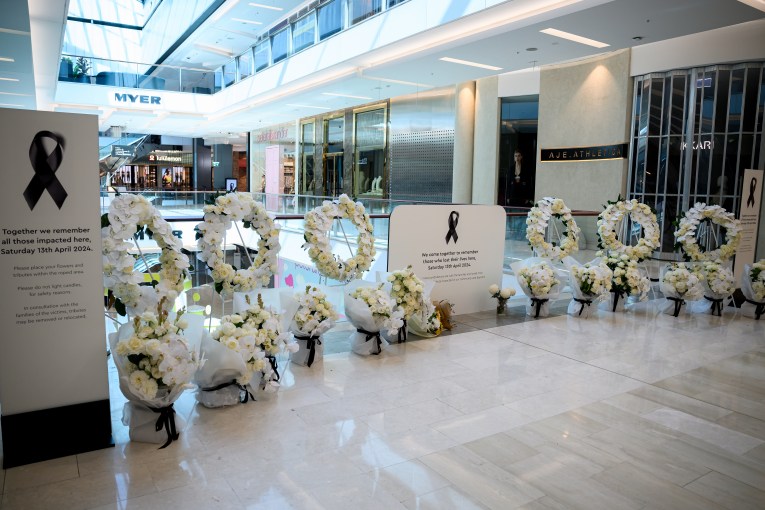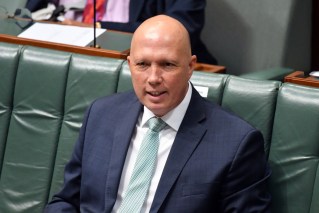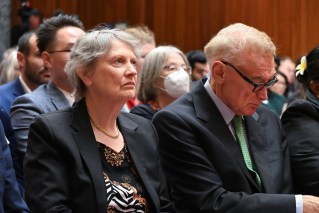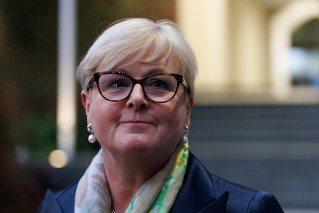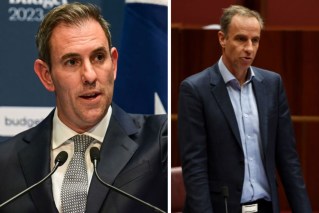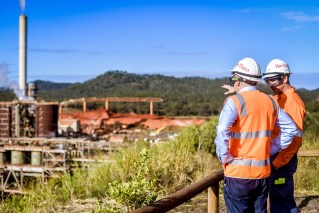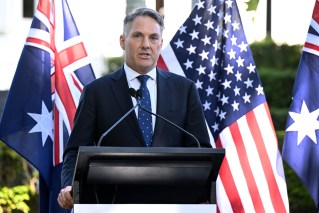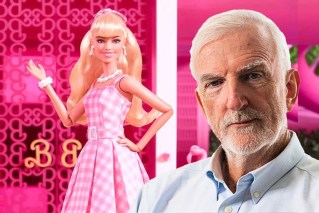Wages war: Government launches high-stakes attack on workers’ pay

An attack on Labor leader Anthony Albanese for saying prices should not rise faster than workers’ pay has drawn a ferocious response and taken the cost of living in a new and complicated direction.
But is it fair?
The Labor leader told the ABC he did not believe that wages ought to be “going backwards”, later saying he would support a hike to the minimum wage that matched the current rate of inflation (5.1 per cent).
Mr Albanese said the Fair Work Commission would rule on the wage claim as an independent tribunal and that Labor would make its own submission on the minimum wage and the cost of living.
Prime Minister Scott Morrison pounced.
In a high-stakes attack on Mr Albanese’s credibility, the Prime Minister employed his harshest rhetoric of the campaign, calling the ALP leader a “novice” and “complete loose unit”.
That attack has been supported by sections of the business lobby and the media.
But is the idea that workers should not expect their pay packets to decrease so radical?
Economists weigh in
Economists had differing takes on what a pay rise of 5.1 per cent might mean for the economy and also on the related question of Mr Albanese’s economic judgment.
Signs that prices and wages are surging simultaneously puts many economists on high alert, lest bids for pay rises to help workers pay for goods push their prices further still, which historically created a spiral of inflation and interest rate rises.
Steven Hamilton, an assistant professor of economics at George Washington University, said awards covered more than two million Australian workers and scale was key to understanding the impact of wage rises.
“There’s an idea that this will be costless, that firms will just reach into their profits,” Dr Hamilton said.
“Wages are roughly 40 per cent of a firm’s cost base on average. The consequence will be higher prices.”
Impacts on prices and any potential corresponding rise in interest rates, Dr Hamilton said, were heightened at a time when the central bank had already signalled its intention to intervene to moderate the post-pandemic economy.
He said a multi-year commitment to raising wages might have been a smarter alternative but also added that much of the recent rhetoric about wages was probably so forceful because it was hypothetical: Politicians often over-egg their ability to deliver higher wages.

Scott Morrison called Mr Albanese “a loose unit on the economy” after the Opposition Leader advocated for a 5.1 per cent hike to the minimum wage. Photo: AAP
‘It’s not outrageous’
Independent economist Saul Eslake said Mr Albanese’s proposal came with risks but was also far from radical.
“I don’t think it was irresponsible,” Mr Eslake said.
“It does address what he’s seeking to address [and] what is a serious issue – namely, the stagnation of wages over the last five or so years.”
Mr Eslake argued that interventions on wages needed to be accompanied by reforms to increase productivity.
But he rejected that Mr Albanese had expressed radical views.
“Does it put him in the centre-left?” he asked.
“Yes.
“But that’s where you would expect the Labor leader to be. It’s not outrageous; it’s a bit to the left of centre.”
Mr Eslake said flatlining wages owed mainly to declining labour productivity but also to a shift in the balance of power in the labour market away from workers following industrial relations changes and to persistently and unusually high unemployment.
“Employees were in a weaker position than employers,” he said.
Mr Eslake said that in a strong economy wage rises would be passed onto consumers by businesses and feed inflation.
“That would probably result in the Reserve Bank raising interest rates sooner and perhaps by more,” he said.
But he said fears of an increase of this size bringing about a wage-price spiral and rampant inflation such as was seen in the 1970s and ’80s were misplaced. That dynamic was also the product of central banks being under political control.
Now that they operated independently, monetary policy would head off a wage-led inflation crisis before it took hold, he said.
A difficult balancing act
Impact Economics lead economist Angela Jackson also said the response to Mr Albanese’s remarks was overblown.
“Maintaining real wages, I wouldn’t say, is an extreme view,” she said.
But Dr Jackson did back a more modest 4 per cent increase as a means of preserving wages without inviting too much inflationary pressure.
Views on wages, she said, were a balancing act and policymakers’ decisions reflected the emphasis they chose to place on the many factors that determine the health of the economy.
Dr Jackson says the position advanced by big business discounts the negative economic effects of having less money in consumers’ pockets.
“Employers are talking about a 2 to 3 per cent rise; that would be incredibly low and a really significant real wage cut for some workers that would undermine economic growth,” she said.
“Wages haven’t caused inflation, it’s been caused mainly by supply issues. Wages growth is not an inflation issue, but low wage growth is certainly a risk for the economy.”
The wages back and forth forces difficult choices that the government believes has exposed Mr Albanese’s weakness on the economy and which plays to its characterisation of him as a creature of the Labor left faction.
But sources in the Opposition campaign argue that in a race to try to outpoint Mr Albanese on economics, the government has now positioned itself as arguing in favour of lower pay for workers.
That is a tough sell anywhere, but especially in crucial seats such as Bass and Gilmore, where household incomes are among Australia’s lowest.
